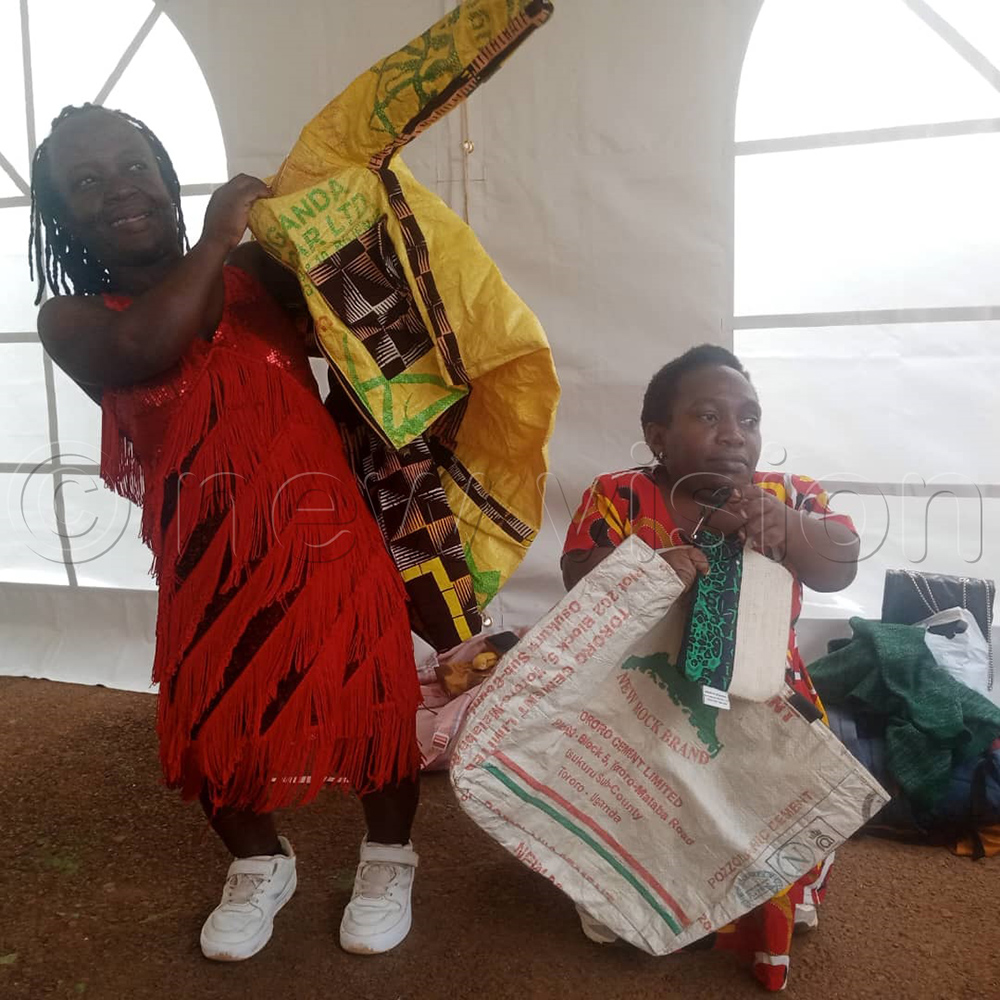'We need more women leading climate action'
This is a call made by Margret Athieno Mwebesa during the 4th Annual Women in Climate Change Action Conference that took place at the Makerere University Business School (MUBS) in Kampala on Thursday, July 24.
Martinez from GGGI listens to a woman exhbitor of a climate technology of preserving water for drinking on the sidlines of the Women in Climate Change Conference at MUBS. (Photo by Prossy Nandudu)
____________________
More women are needed in leadership and policymaking positions in the fight against climate change.
This is a call made by Margret Athieno Mwebesa during the 4th Annual Women in Climate Change Action Conference that took place at the Makerere University Business School (MUBS) in Kampala on Thursday, July 24.
Mwebesa is the climate change and the national focal person for the United Nations Framework Convention on Climate Change (UNFCCC) in the Ministry of Water and Environment.
She said having more women in the climate action space would see them "influence the budgeting processes to take into account their [fellow women's] needs".
The argument is that the low number of women in decision-making positions limited fellow women's access to climate change adaptation funds.
Some women exhibitiing thier innovations from plastic waste on the sidelines of the Women in Climate Change Action Conference at MUBS. (Photo by Prossy Nandudu)
Yet, according to proponents like Mwebesa, it is the women who suffer the most whenever there is a climate change-related disaster, such as drought and floods.
"Whenever there are heavy rains, it is the women seen running with children, looking for food, firewood, finding shelter, but many of their challenges are not well represented in key decision-making meetings,” she said.
The climate action conference at MUBS, organised by Women in Climate Change Action (WICCA), was aptly themed: 'Women Leading Climate Action: From Local Solutions to Global Policy and Innovation'.
It was aimed at accelerating inclusive climate leadership, ensuring women’s perspectives shape a resilient and equitable future for all.
It also particularly aimed at showcasing some of the initiatives women have developed to cope with the changing effects of climate change as well as creating lasting solutions.
“We don’t want to join the group of countries that have degraded their environment," said Sarah Kezia Nambalirwa from WICCA.
"So, we create innovations in waste management, climate-smart agriculture, making eco-friendly economies, and eco-friendly cooking methods that are cheaper but can protect the environment."
Nambalirwa was keen to note that many people still do not understand the concept of climate change and how this is affecting their livelihoods.
“People still associate climate change with the cutting down of trees, yet there are many aspects related to climate change. So we still need mass sensitisation for the masses to understand the climate change issue," she said.
Global Green Growth Institute (GGGI) country representative, Dr Pablo Martinez, said that they are supporting entrepreneurs engaged in green initiatives or businesses that have an aspect of environmental conservation with mentorship services and training, among others.
He said they also support the government in the formulation of policies that will embrace women in climate change initiatives.